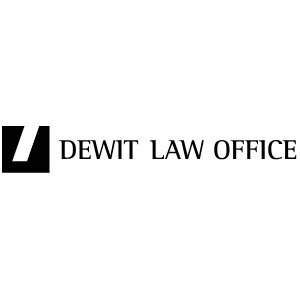Best Funds & Asset Management Lawyers in Brussels
Share your needs with us, get contacted by law firms.
Free. Takes 2 min.
List of the best lawyers in Brussels, Belgium
About Funds & Asset Management Law in Brussels, Belgium
Funds and asset management is a significant area of law in Brussels, Belgium, due to the city's role as a major European financial center and the seat of various European Union institutions. This branch of law regulates how investment funds are created, managed, and marketed, and it establishes the framework for asset managers, investment advisors, and related service providers. Both retail and institutional investors rely on strong legal and regulatory frameworks to ensure the protection of assets, compliance with financial laws, and proper management of risks. Belgian funds and asset management law is shaped by both national legislation and European directives, such as the Alternative Investment Fund Managers Directive (AIFMD) and the Undertakings for Collective Investment in Transferable Securities Directive (UCITS). Understanding these laws is critical for anyone seeking to operate or invest within this sector in Brussels.
Why You May Need a Lawyer
There are several situations where legal expertise becomes essential in the field of funds and asset management in Brussels. Common scenarios include:
- Establishing a new investment fund and navigating licensing procedures
- Ensuring ongoing compliance with Belgian and EU regulations for fund operations
- Drafting or reviewing documentation for fund offerings, such as prospectuses and terms
- Handling cross-border distribution of funds within the European Union
- Structuring assets and managing tax implications for investment vehicles
- Addressing disputes between investors, fund managers, or regulatory authorities
- Preparing for regulatory audits or responding to investigations
- Managing risks and reporting obligations, including anti-money laundering (AML) compliance
- Fulfilling transparency requirements in fund marketing and investor communications
- Mergers, acquisitions, or restructuring of asset management firms or funds
A lawyer specializing in this area can provide guidance, mitigate risks, and ensure that all operations adhere to the complex web of applicable laws.
Local Laws Overview
Funds and asset management activities in Brussels are mainly regulated by Belgian national law and a comprehensive system of EU directives and regulations. Key points include:
- Regulatory Authority: The Financial Services and Markets Authority (FSMA) is the main regulatory body overseeing funds and asset management in Belgium, including registration, licensing, and supervision.
- Fund Types: The two principal categories are UCITS funds, typically offered to retail investors, and Alternative Investment Funds (AIFs), which generally target professional or institutional investors. Each is subject to distinct rules.
- Licensing and Approval: Fund managers must usually be authorized and comply with fit and proper requirements. They must also meet capital requirements and demonstrate robust governance structures.
- Cross-Border Distribution: The EU passporting regime allows authorized funds in Brussels to be marketed across the EU, provided certain conditions are met.
- Transparency and Disclosure: There are strict requirements for disclosures to investors, including risk factors, fees, and investment strategies.
- AML and KYC: Belgian law requires firms to establish robust procedures for anti-money laundering and know your customer practices, with significant penalties in case of non-compliance.
- Taxation: There are specific tax rules and reporting obligations for funds and managers operating in Belgium.
The regulatory environment is dynamic and subject to frequent changes, making ongoing legal advice crucial to staying compliant.
Frequently Asked Questions
What types of investment funds are available in Brussels, Belgium?
In Brussels, the main types of funds are UCITS (undertakings for collective investment in transferable securities) for retail investors, and various forms of Alternative Investment Funds (AIFs) for professional or institutional investors, including hedge funds, private equity funds, and real estate funds.
Who regulates funds and asset managers in Belgium?
The Financial Services and Markets Authority (FSMA) is responsible for regulating funds, asset managers, and related service providers in Belgium.
Is it necessary to obtain a license to manage a fund in Brussels?
Yes, fund managers must obtain the appropriate license or authorization from the FSMA, demonstrating compliance with financial, organizational, and governance requirements.
Can foreign funds be marketed to Belgian investors?
Yes, foreign funds can be distributed in Belgium, but they must comply with local notification or approval procedures, depending on the type of fund and target investor.
What are the main compliance obligations for asset managers in Brussels?
Asset managers must adhere to rules on risk management, transparency, investor disclosures, anti-money laundering, and proper segregation of client assets, among others.
How are funds taxed in Belgium?
Taxation varies depending on fund type, structure, and investor profile. There can be subscription taxes, withholding taxes, and exemptions in certain circumstances. Professional advice is recommended to optimize tax efficiency.
What is the difference between a UCITS fund and an AIF?
UCITS funds are highly regulated, primarily for retail investors, with strict diversification, liquidity, and disclosure requirements. AIFs are more flexible but are generally aimed at professional investors and subject to different regulations.
What protections do investors have in Belgium?
Investors benefit from regulatory protection through mandatory disclosures, conduct-of-business rules, regular audits, and legal recourse mechanisms in case of disputes or breaches by fund managers.
Can a fund be managed outside of Belgium but offered to Belgian investors?
Yes, provided the fund complies with Belgian and European passporting rules, and completes any required registration with the FSMA.
How can I resolve disputes with a fund manager or another investor?
Disputes may be resolved through negotiation, mediation, arbitration, or litigation in Belgian courts. Legal assistance can help identify the most effective route depending on the case's specifics.
Additional Resources
For further information and support in Brussels, consider these resources:
- Financial Services and Markets Authority (FSMA): The main regulator for funds and asset management activities in Belgium
- National Bank of Belgium (NBB): Provides oversight of financial stability and can be involved for systemic institutions
- Belgian Asset Managers Association: Offers industry news and resources
- European Securities and Markets Authority (ESMA): Sets EU-wide rules and best practices for asset management
- Belgian Ministry of Finance: Responsible for tax policies affecting funds and investors
- Local legal and financial professional networks
- Consumer ombudsman services for investor complaints
Next Steps
If you require legal assistance regarding funds and asset management in Brussels, consider the following steps:
- Clarify your goals: Define whether you need to establish a fund, ensure ongoing compliance, resolve disputes, or seek regulatory approval.
- Gather documentation: Prepare all relevant documents, such as fund prospectuses, transaction records, or previous correspondence with authorities.
- Research and identify legal specialists: Look for lawyers or law firms with expertise in Belgian and EU funds and asset management law.
- Schedule a consultation: Meet with a qualified legal advisor to discuss your situation, risks, and potential strategies.
- Stay informed: Keep updated on regulatory developments by subscribing to official FSMA and industry updates.
Taking early legal advice can help you prevent costly mistakes, ensure compliance, and protect your interests in the complex world of funds and asset management in Brussels, Belgium.
Lawzana helps you find the best lawyers and law firms in Brussels through a curated and pre-screened list of qualified legal professionals. Our platform offers rankings and detailed profiles of attorneys and law firms, allowing you to compare based on practice areas, including Funds & Asset Management, experience, and client feedback.
Each profile includes a description of the firm's areas of practice, client reviews, team members and partners, year of establishment, spoken languages, office locations, contact information, social media presence, and any published articles or resources. Most firms on our platform speak English and are experienced in both local and international legal matters.
Get a quote from top-rated law firms in Brussels, Belgium — quickly, securely, and without unnecessary hassle.
Disclaimer:
The information provided on this page is for general informational purposes only and does not constitute legal advice. While we strive to ensure the accuracy and relevance of the content, legal information may change over time, and interpretations of the law can vary. You should always consult with a qualified legal professional for advice specific to your situation.
We disclaim all liability for actions taken or not taken based on the content of this page. If you believe any information is incorrect or outdated, please contact us, and we will review and update it where appropriate.















